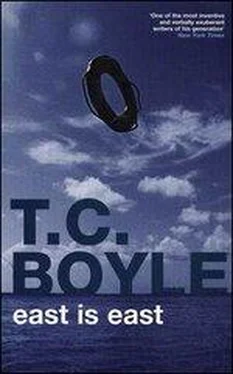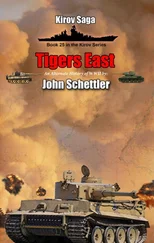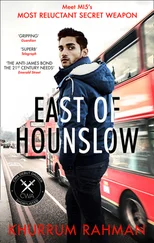Tom Boyle - East is East
Здесь есть возможность читать онлайн «Tom Boyle - East is East» весь текст электронной книги совершенно бесплатно (целиком полную версию без сокращений). В некоторых случаях можно слушать аудио, скачать через торрент в формате fb2 и присутствует краткое содержание. Жанр: Современная проза, на английском языке. Описание произведения, (предисловие) а так же отзывы посетителей доступны на портале библиотеки ЛибКат.
- Название:East is East
- Автор:
- Жанр:
- Год:неизвестен
- ISBN:нет данных
- Рейтинг книги:5 / 5. Голосов: 1
-
Избранное:Добавить в избранное
- Отзывы:
-
Ваша оценка:
- 100
- 1
- 2
- 3
- 4
- 5
East is East: краткое содержание, описание и аннотация
Предлагаем к чтению аннотацию, описание, краткое содержание или предисловие (зависит от того, что написал сам автор книги «East is East»). Если вы не нашли необходимую информацию о книге — напишите в комментариях, мы постараемся отыскать её.
, praised by
in
as "one of the most exciting young fiction writers in America," the result is a sexy, hilarious tragicomedy of thwarted expectations and mistaken identity, love, jealousy, and betrayal.
East is East — читать онлайн бесплатно полную книгу (весь текст) целиком
Ниже представлен текст книги, разбитый по страницам. Система сохранения места последней прочитанной страницы, позволяет с удобством читать онлайн бесплатно книгу «East is East», без необходимости каждый раз заново искать на чём Вы остановились. Поставьте закладку, и сможете в любой момент перейти на страницу, на которой закончили чтение.
Интервал:
Закладка:
No one moved. Hiro stood there poised on the brink of capture and escape, the bōifurendo immobilized, his accomplice up to his knees in the murk and gaping up at him in bewilderment. He could have darted past the bōifurendo, dodging round him on the narrow spit of dry land, but there were more butter-stinkers behind him, a whole legion of them with fish poles and pickup trucks and boat trailers, the hate and loathing and contempt already settling in their eyes. There was no choice: hesitate and you are dead. Three strides, a running leap, and he was in his element, in the water, in the water yet again, born to it, inured to it, as quick and nimble and streamlined as a dolphin.
Déjà vu.
But this time the water wasn’t salt—it was bathwater, turgid, foul, the swill they flushed down the drain after the whole village has bathed for a week. He slashed at the duckweed and surface scum, powering for the far side of the lagoon before the astonished fishermen behind him could drop their tackle boxes and fire up the engines of their leaping blunt-nosed hakujin swamp boats. He reached the far shore—but it wasn’t land, actually, it was something else, something that rocked beneath his feet like the taut skin of a trampoline—while the familiar shouts rose behind him and the outboard engines sprang to life with the growl of the hunting beast. No matter: he was already gone.
Yes, but now what? If he’d thought the island was bad, if he’d had his fill of bogs and mosquitoes and clothes that never dried, then this mainrand was hell itself. He fought his way through the bush, away from the voices and the scream of the outboards, clawing his way through the tangle, but there was no rest, no surcease, no place to set his feet down or pull himself from the muck. The water was knee-deep, waist-high, two feet over his head, and beneath it was the mud that sucked at him, sank him to the hips, pulled him inexorably down. With each desperate flailing stroke he was sinking deeper. Such an ignominious death, he thought, invoking Jōchō, inflating his hara, but going down all the same. Finally, his limbs numb with fatigue, gasping for air and choking on the gnats and mosquitoes that blackened the air around him, he managed to heave himself out of the muck and up onto the slick bony knees of a tree that rose up before him like a pillar of granite.
He lay there panting, too sapped even to brush the insects away from his face, the gloom of the big moss-hung trees darkening the morning till it might have been night. A swamp! Another swamp! A swamp so massive it could have swallowed up Ruth’s cabin, Ambly Wooster’s subdivision, the big house and all the piddling bogs and mud puddles on Tupelo Island without a trace. Shit, he gasped. Backayard. Son of a bitch. He felt like a mountaineer who’s dragged himself up the face of a sheer cliff, inch by agonizing inch, only to find a second cliff, twice as high, rearing above it. What had happened to him? How had he gotten here? Doggo, his obōsan, Chiba, Unagi: they were faces he could barely recall. But Ruth: he saw her clearly, in sharp focus, saw her in all her permutations: the slim white-legged secretary, the seductress, the lover, his protector and jailer. She’d shared her food with him and her bed, shared her tongue and her legs, and she was going to smuggle him to the mainrand —not this mainrand, not the mainrand of rot and stink and demented nature, but to the mainrand of cities and streets and shops where happas and wholes walked hand in hand.
It was then—delivered from the trunk of the Mercedes and thrust back into the swamp—that he had a thought that stopped him cold. For forty-eight hours now, from the time they’d run him down with their guns and their dogs and their glassy cold eyes, through his escape from the holding cell and the swollen stultifying hours of his entombment in the trunk, he’d been circling around the hard knot of an inadmissible question— Who bad betrayed him? —and its equally painful corollary, Who knew he was hiding out in the cabin in the woods? Now the answer came to him, the answer to both questions, wrapped up in a single resonant monosyllable: Ruth.
There was a way the paddle dipped into the water and with a single deft motion of the wrist dug, rotated and dipped again, a rhythm and coordination that held out the possibility of perfection, and it pleased him. It was tidy. Neat. The stroke conserved energy and expended it too—not like those idiots in their motor launches on the public trails—and it felt good in the shoulders and triceps. It was so quiet too—he could almost imagine himself a Seminole or a Creek, slipping up on gator or ibis or even one of the palefaces who’d driven them into the swamp in the days of Billy Bowlegs.
Jeff Jeffcoat was gliding through a dream. Ever since he was a boy in Putnam Valley, New York, he’d wanted to do this, to push through the greatest swamp in America, skirting danger, unfolding miracles, watching the gator in its wallow, the anhinga in its nest, the cottonmouth curled in the branches of a tree in deadly semaphore. And here he was—thirty-eight years old, newly arrived in Atlanta to work in the colorization lab at TBS, his wife Julie perched on a cushion amidships, his son Jeff Jr. plying his paddle in the bow—here he was, doing it. And it was glorious—something new round every bend. It was hot, sure, he had to admit it, and the bugs were horrendous despite the repellent that stung his eyes, soured the corners of his mouth and dripped steadily from the tip of his nose along with about half a gallon of sweat. But what was a little discomfort compared with the chance to see an alligator snapper in the wild—a hundred and fifty pounds, big around as a cocktail table—or the legendary black puma or that rarest of rare birds, the ivory-billed woodpecker?
“Dad.” Jeff Jr.’s voice was low and insistent, the terse whisper of the scout; Jeff felt Julie come to attention, and his own eyes shot out past the bow to scan the mass of maiden cane and titi up ahead. “Dad: eleven o’clock, thirty yards or so.”
“What?” Julie whispered, snatching up the binoculars. She was wearing a hairnet to combat the bugs, a pair of Banana Republic shorts and the pith helmet Jeff had bought her as a joke. She was as excited as he was.
Jeff felt a thrill go through him: this was life, this was adventure, this was what the explorers must have known through every waking moment of their lives. “What is it, Jeffie—what do you see?”
“Some—”
“Shhhh: don’t scare it off.” ’
The whisper of a whisper: “Something big. See it, up there, where the bushes are shaking?”
“Where?” Julie breathed, the binoculars pressed to her face. “I don’t see anything.”
Jeff fanned the paddle in the water, ever so silently, the canoe creeping forward under its own momentum. It was probably an alligator—the swamp was crawling with them. Yesterday, their first day out, they went nearly an hour before they spotted their first gator—and it was a runt, two feet or less even—but the moment had been magical. They’d spent half an hour motionless in the canoe, just watching it lying there, as inert as the cypresses towering over it. He must have taken two rolls of film of that gator alone, and every shot would be the same, he knew it—gator in ooze—but he’d gotten carried away. Later, as the day wore on and the gators popped up everywhere, as common as poodles in the park, the family became so inured to their presence that Jeff Jr. had done a very foolish thing. A big gator—ten, twelve feet long—had nosed up to the canoe while they were lunching on the chicken breast and avocado sandwiches Julie had made the night before, and Jeff Jr., bored or heedless or just feeling full of the devil, as boys will, had begun to toss bits of bread and lettuce into the water and the gator had gone for them. That was all right. But familiarity breeds contempt, as Jeff’s father used to say, and Jeffie had flung an apple at the thing. Hard. He was a pretty good pitcher, Jeffie was, the ace of his Little League team, and the apple drilled the alligator right between the eyes—and that was when all hell broke loose. The thing had come up out of the water and slammed down again like a cannonballer coming off the high dive, and then it vanished, leaving the canoe rocking so wildly the water sloshed over the side and soaked the camera bag, the picnic basket and Jeffie’s backpack. That was a close one, and Jeff Jr. had seemed so upset—his eyes big and his shoulders quaking—that Jeff had forgone the lecture till they set up camp later that evening.
Читать дальшеИнтервал:
Закладка:
Похожие книги на «East is East»
Представляем Вашему вниманию похожие книги на «East is East» списком для выбора. Мы отобрали схожую по названию и смыслу литературу в надежде предоставить читателям больше вариантов отыскать новые, интересные, ещё непрочитанные произведения.
Обсуждение, отзывы о книге «East is East» и просто собственные мнения читателей. Оставьте ваши комментарии, напишите, что Вы думаете о произведении, его смысле или главных героях. Укажите что конкретно понравилось, а что нет, и почему Вы так считаете.











